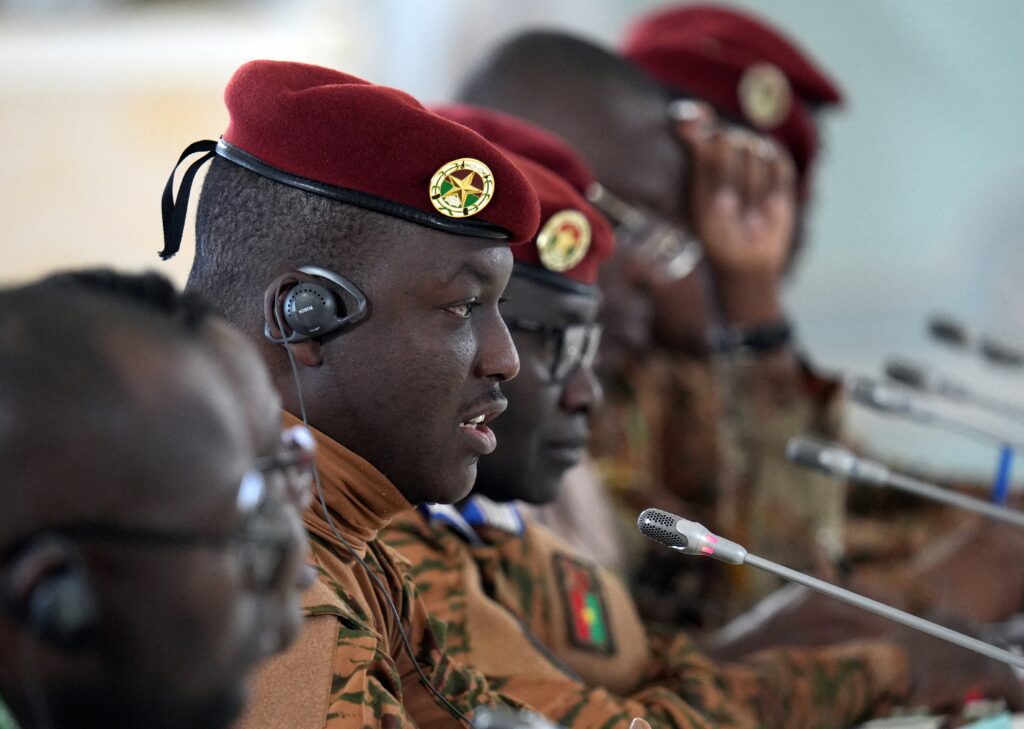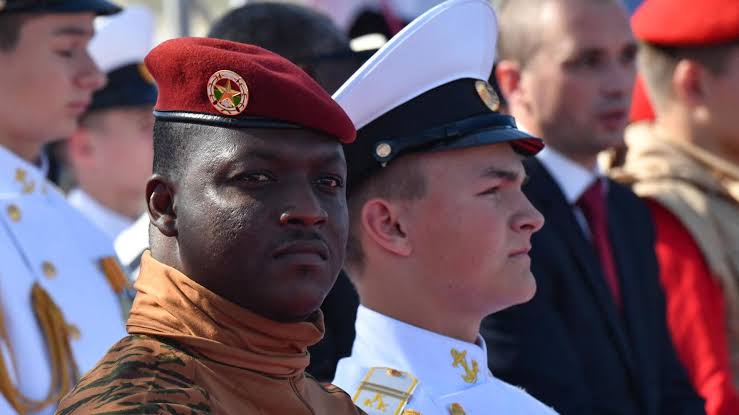Ibrahim Traoré’s bold actions resonate with the spirit of revolution in Africa. Burkina Faso recently severed ties with its colonial past by ordering French special forces to evacuate the country, following in Mali’s footsteps. This historic decision reflects a nation determined to chart its own course. Leading this movement is Ibrahim Traoré, a military officer turned interim leader, whose journey embodies the nation’s struggle for freedom and self-determination..
Born in 1988 in Kéra, Bondokuy, Mouhoun Province, Ibrahim Traoré’s early years were marked by a quiet determination and a remarkable talent. His education, initially in Bondokuy and later at a high school in Bobo-Dioulasso, laid the foundation for his future leadership. Traoré’s academic pursuits led him to the University of Ouagadougou, where he studied geology and actively participated in student associations, advocating for his peers and honing his leadership skills.
Traoré’s military career began in 2009 when he joined the army of Burkina Faso, graduating from the Georges-Namoano Military Academy. His dedication and courage were evident as he underwent training in Morocco and served in various capacities, including participating in peacekeeping missions in Mali and combatting insurgency in Burkina Faso.
It was during these challenging times that Traoré witnessed the disparity between the soldiers’ lack of equipment and the politicians’ corruption—a realization that fueled his disillusionment with the status quo. His growing discontent with the government’s neglect of its soldiers and its people’s welfare set the stage for his future role in Burkina Faso’s political landscape.
Traoré’s pivotal moment came in 2022 when he joined a group of army officers in supporting the January coup d’état that ousted the existing regime. This marked the beginning of a series of events that would ultimately lead to his assumption of power in September of the same year.
Following his rise to leadership, Traoré has made bold moves, including the expulsion of French forces and the reassertion of Burkina Faso’s sovereignty. His actions have garnered attention and admiration, with many drawing parallels between him and the late Thomas Sankara, a revolutionary figure in Burkina Faso’s history.

Despite his rapid ascent to power, Traoré faces challenges ahead. Critics question his motives and call for tangible results to prove his commitment to the people of Burkina Faso. As he navigates the complexities of leadership, Traoré must stay true to his vision of a free and prosperous Burkina Faso, ensuring that his actions align with the nation’s best interests.
In conclusion, Ibrahim Traoré’s journey from a young student to Burkina Faso’s interim leader is a testament to his resilience and dedication to his country’s cause. His story serves as a reminder of the power of determination and the enduring quest for freedom that defines Burkina Faso’s spirit. As Traoré continues to lead his nation through turbulent times, his actions will shape Burkina Faso’s future and its place in the world.

Leave a Reply
You must be logged in to post a comment.